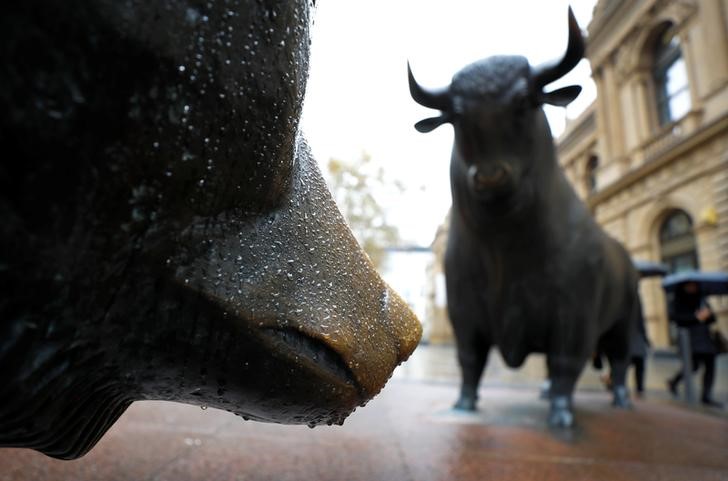By Geoffrey Smith
Investing.com -- European stock markets got off to a flying start in 2020, rising across the board on optimism stoked by China’s latest monetary policy easing and President Donald Trump’s confirmation that the ‘phase-1’ trade deal with Beijing will be signed on Jan. 15.
Stocks were also building on a growing consensus that European markets are at present more attractively valued than their U.S. counterparts. They were also shrugging off as 'last year's news' a round of purchasing manager indices from IHS Markit which showed German, U.K. and Italian factories all in contraction in December.
By 5 AM ET (1000 GMT), the benchmark Euro Stoxx 600 was at 419.92, up 0.9% on the day and just off an intraday high of 420.72, which represented a new all-time high.
The U.K. FTSE 100 was up 1.0%, while the German DAX was up 0.8%, while the biggest gains were in Sweden, where the OMX rose 1.9%.
Among the biggest gainers were those that had fared worst in 2019, with banks leaping as bond yields hit their highest in months. Deutsche Bank (DE:DBKGn) rose 5.2% and Commerzbank (DE:CBKG) rose 7.0% as the German 10-year bond yield hit its highest since May, easing the pressure of negative interest rates on profit margins.
Bankia (MC:BKIA) led a strong Spanish banking sector with a 4.2% rise, while Santander (MC:SAN) was 3.2% higher, as was Dutch giant ING Groep (AS:INGA).
Airbus (PA:AIR) led gains in France, capitalizing on the improvement in the trade outlook and on the woes of its biggest rival, Boeing (NYSE:BA).
Bucking the trend was U.K. independent oil and gas producer Tullow Oil (LON:TLW), which fell 4.7% after announcing disappointing drilling results in Guyana.
Overnight, China's central bank had reduced its reserve requirement for banks again, freeing up some $115 billion in liquidity for banks to use. The move was partly seasonal, given that banks require more liquidity over the coming Chinese new year holiday.
